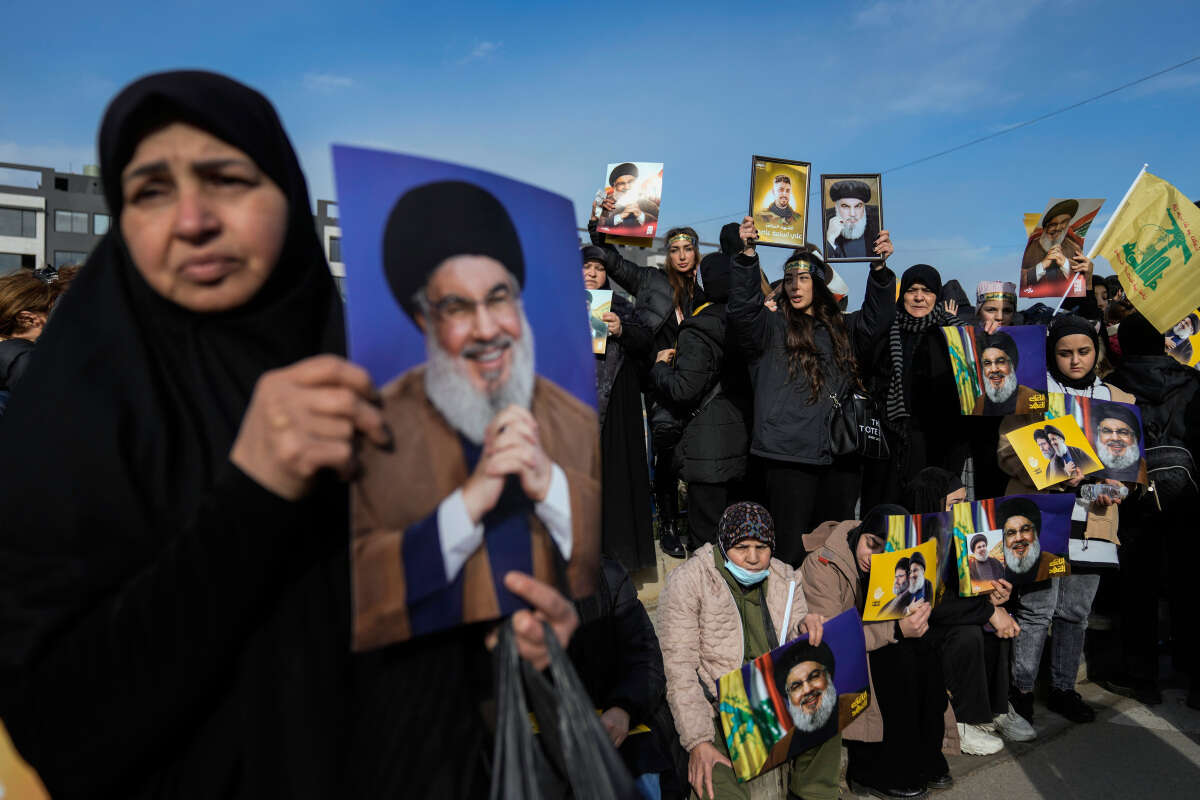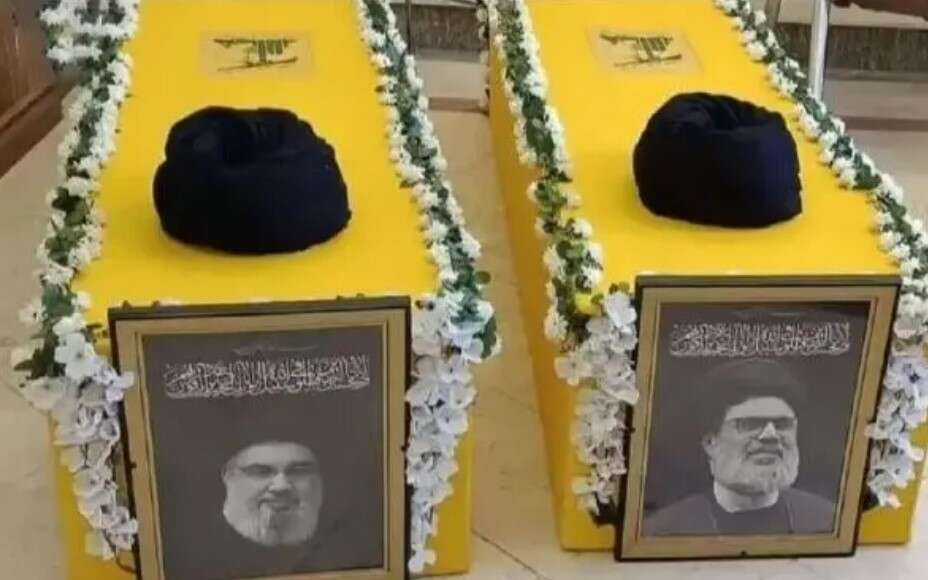Nearly five months have passed since Israeli Air Force planes dropped 80 tons of bombs on Hezbollah's headquarters in Beirut's Dahieh suburb, and this Sunday marks the funeral of Hezbollah Secretary-General Hassan Nasrallah, who was killed in the strike codenamed New Order.
Since early morning hours, hundreds have begun streaming into the Camille Chamoun Sports City Stadium in Beirut, which holds nearly 50,000 people, with the funeral ceremony scheduled to begin at 1 p.m. local time and last approximately one hour. Following the ceremony, the funeral procession will depart from the stadium, with Nasrallah set to be buried in a prepared area near the airport road in south Beirut. His deputy, Hashem Safieddine, who formally replaced him for several days before being eliminated, will be buried Monday in his hometown of Deir Qanoun al-Nahr in south Lebanon.

For any rational observer, the timing of this event is clearly meant to restore some dignity to the Shiite terror organization after recent months of humiliation. Therefore, Israel must take all possible measures to prevent or at least disrupt the funeral and ceremony to demonstrate that a New Order truly exists.
Here are six reasons why Israel should take action:
- Prevent resurgence: The funeral is not merely a religious ceremony but a tool for displaying power. Hezbollah, which has suffered severe blows during the war – from the near-complete elimination of its command structure, through the degradation of its firepower and arrays in south Lebanon, to the ceasefire agreement with Israel signed over its head forcing it to move northward – sees the ceremony as an opportunity for image rehabilitation before the Lebanese public. Such a mass event proceeding undisturbed could recreate Hezbollah's sense of victory and foster their perception that Israel is once again deterred from acting in Lebanon.
- Security risk and opportunity: The ceremony will be attended by Hezbollah senior officials alongside Iranian, Turkish, Yemeni and Iraqi terror operatives. Regarding the risk if Israel does not strike: The event could be utilized to plan terror operations against Israel or recruit new operatives. Regarding the opportunity: This presents a golden opportunity to eliminate numerous regional security threats, or at least demonstrate to those considering joining Hezbollah's ranks that it is highly inadvisable.
- Strategic messaging: Preventing the funeral would stress to Hezbollah, Iran and all regional adversaries that Israel will not allow glorification of those responsible for hundreds of Israeli deaths. Nasrallah, similar to Osama bin Laden whose body was disposed of at sea to prevent his burial site from becoming a pilgrimage destination, does not deserve a grand, mass funeral that could be interpreted as legitimizing his crimes.

- Potential escalation: Paradoxically, allowing the funeral to proceed as planned, rather than an Israeli strike, could lead to escalation in south Lebanon. The eulogies are expected to include condemnations of Israel and demands for the Lebanese government to act against the five Israeli outposts recently established in its territory. It is not far-fetched that attendees might take matters into their own hands and head south to act against Israel Defense Forces troops.
- Israeli morale: We all remember those three weeks that began with the attack on pagers and communication devices and continued with the elimination of Radwan Force commanders and Hezbollah senior officials, including Nasrallah and his replacement. During those days, Israeli civilians walked with smiles and pride unseen since October 7. After a full year of struggling to keep our heads above water, we all remembered Israel's capabilities, especially compared to the constant fear of what might happen, and understood that everything had changed and we now set the pace. This situation has indeed been maintained since then. Disrupting the ceremony would prove to our northern neighbors that we still determine matters here, and what was in the past – will no longer be. Israel does not fear striking anywhere, even if it leads to escalation.
- Northern Command chief: In recent months, I have met numerous brigade commanders who fought in the north, both regular and reserve forces. They represent the highest tactical echelon, interfacing between field commanders and troops, and those behind determining strategy. One common statement united them all: Uri Gordin, GOC Northern Command, is one of the best commanders they have had during their service. He is principled, frequently visits the troops, is connected to commanders and aggressive. He supported action after the Megiddo attack, advocated for striking Hezbollah operatives at the war's start, and primarily managed the defensive battle in the north while meticulously planning the maneuver in south Lebanon. A strike now, with limited time remaining in his Northern Command position, would leave a legacy and operational precedent for years to come, and might add merit points in the competition for IDF chief of staff in four years, after Eyal Zamir.
How to strike?
I do not believe an air strike is definitively the best approach. That is one option among others. As a start, I would suggest IDF Arabic spokesperson Colonel Avichay Adraee (who has done excellent work throughout the war, including last night) continue tweeting content that would discourage undecided Lebanese from attending the ceremony.
Leaflets could be scattered with psychological warfare messaging or unmanned aerial vehicles could simply hover above the stadium producing the buzzing noise every Lebanese recognizes. Imagine thousands of frightened Shiites fleeing the stadium when the ceremony begins – what a significant blow to Hezbollah.
Other options not requiring ammunition expenditure include supersonic booms during eulogies, electronic warfare disrupting current Hezbollah leader Naim Qassem's recorded speech or simply cutting power to the venue, and of course messaging that landings and takeoffs from Beirut to various destinations will not be permitted.
Conversely, Nasrallah's burial site could become an excellent location for identifying and targeting terrorists, as ISIS demonstrated last year at former Quds Force Commander Qassem Soleimani's grave. What is clear is that Israel cannot allow this event to proceed without some form of response.




